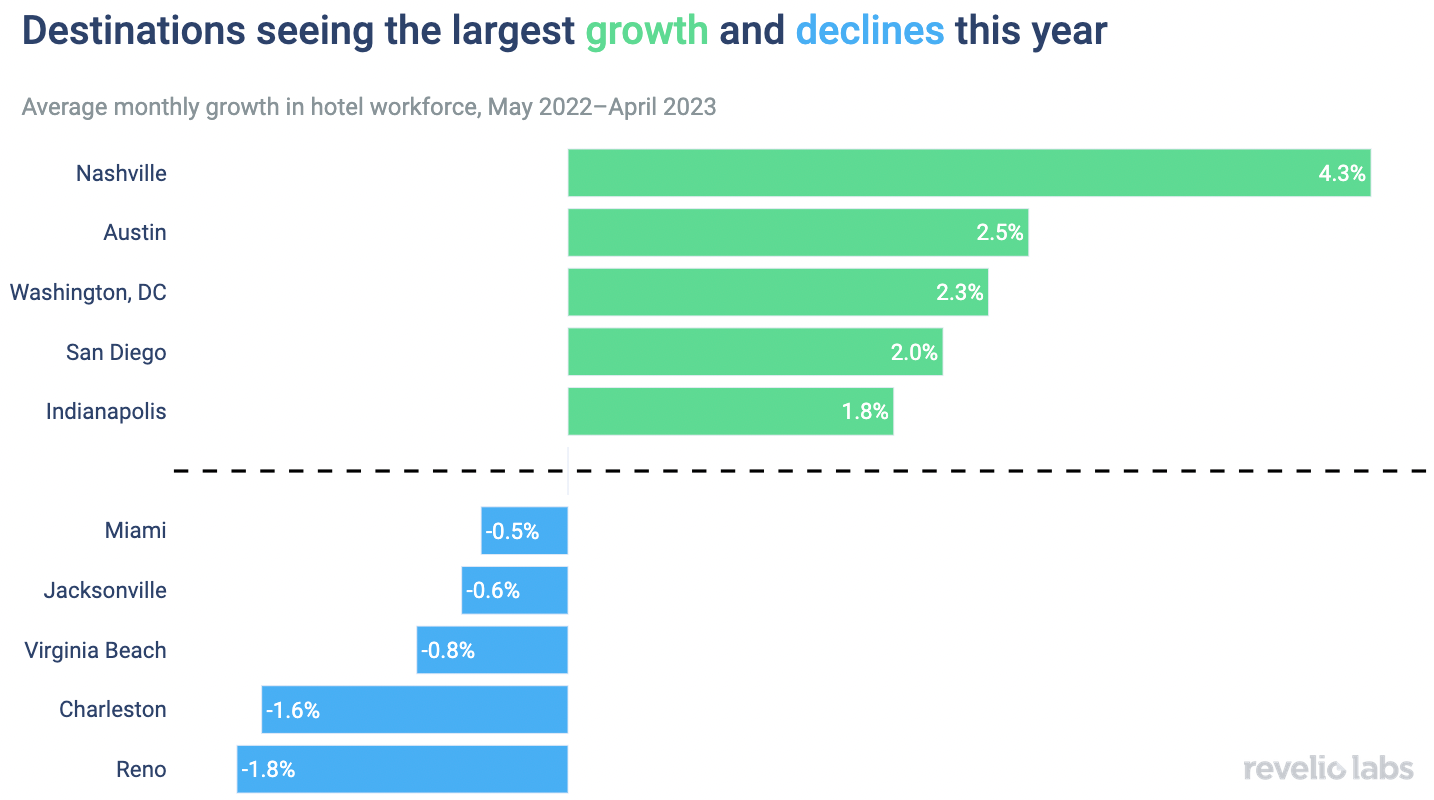Summertime Sadness in the Hospitality Workforce
Travel season is here but hotel workers are not
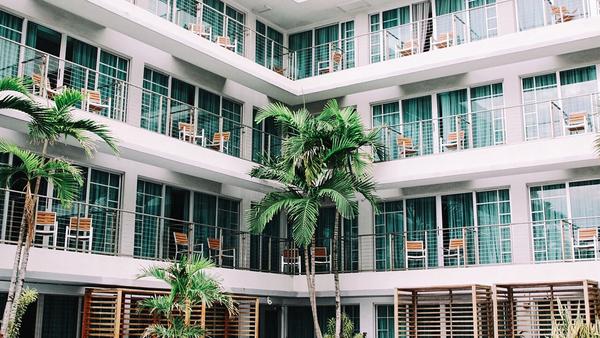
The airline workforce has recently recovered to pre-pandemic levels, but the hotel workforce remains 8% lower compared to February 2020.
Hotel employment is lagging despite increasing wages. Renewed dissatisfaction with management and long hours may be keeping hotel employment low.
Destinations vary considerably in their hotel workforce growth, with the largest declines in Southern coastal cities and the largest growth in Nashville, Austin, and Washington, DC.
Welcome to summer! Over the next few months, many will spend some time at the beach, on the trails, or in new cities. In preparation for the travel season, today, Revelio Labs is looking at the tourism workforce. We are revisiting the labor shortages in the airline and hotel industries, finding out which destinations are heating up and which are cooling off.
First, it’s important to note that the pandemic has caused a huge disruption in the tourism sector, and it has yet to fully rebound. By early 2021, headcounts in the airline and hotel industries had dropped by 5% and 8%, respectively. While employment in airlines recovered in late 2022, employment in hotels remains depressed.

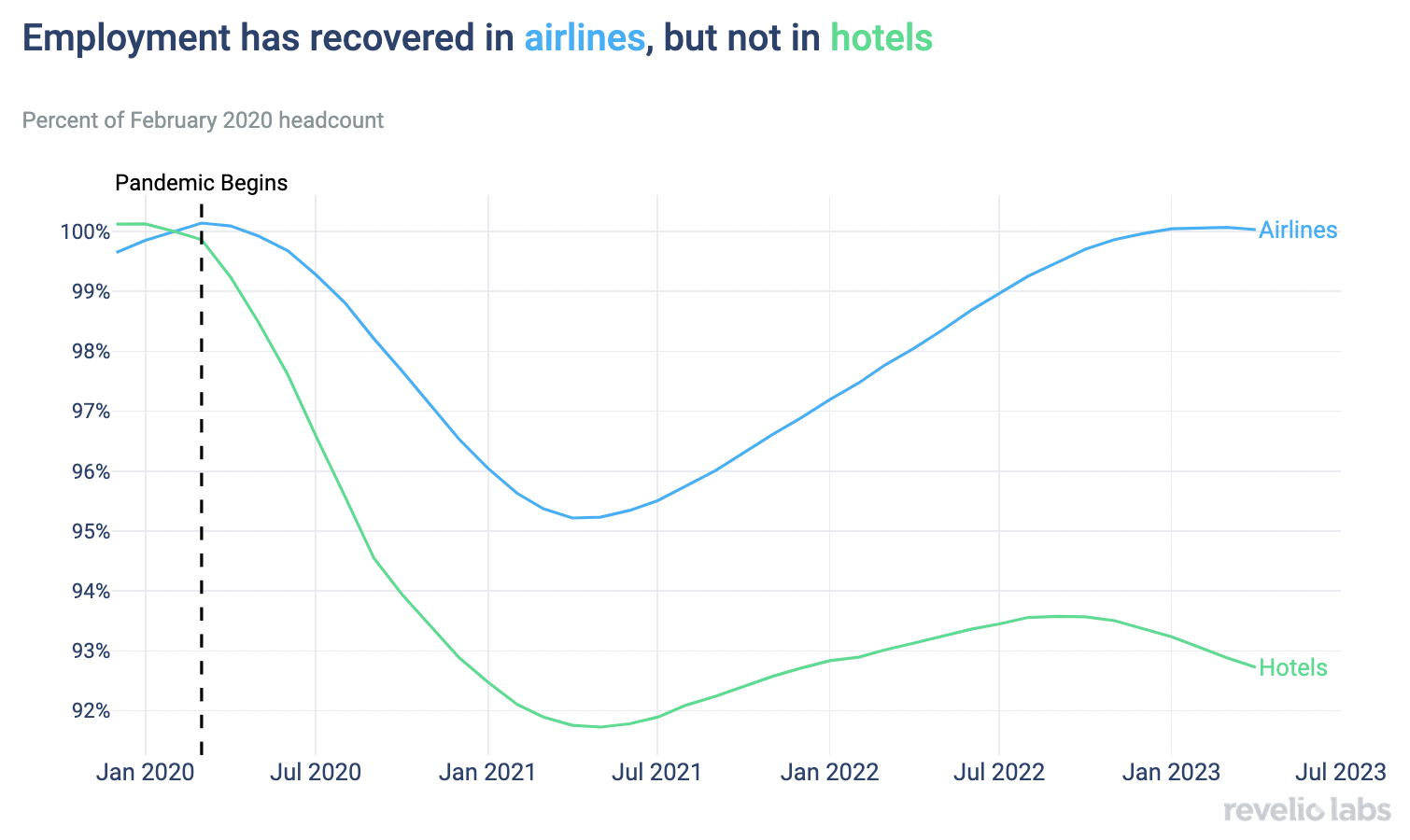
Lagging employment in the hotel industry is partly due to a sustained decrease in travel since the pandemic. Another factor may be salaries: High inflation has depressed wages all around. However, pay is unlikely to be the main factor keeping hotel employment low. Although salaries in hotels were well below their pre-pandemic levels for about two years, since mid-2022 they’ve actually exceeded those levels and have outpaced increases in inflation.

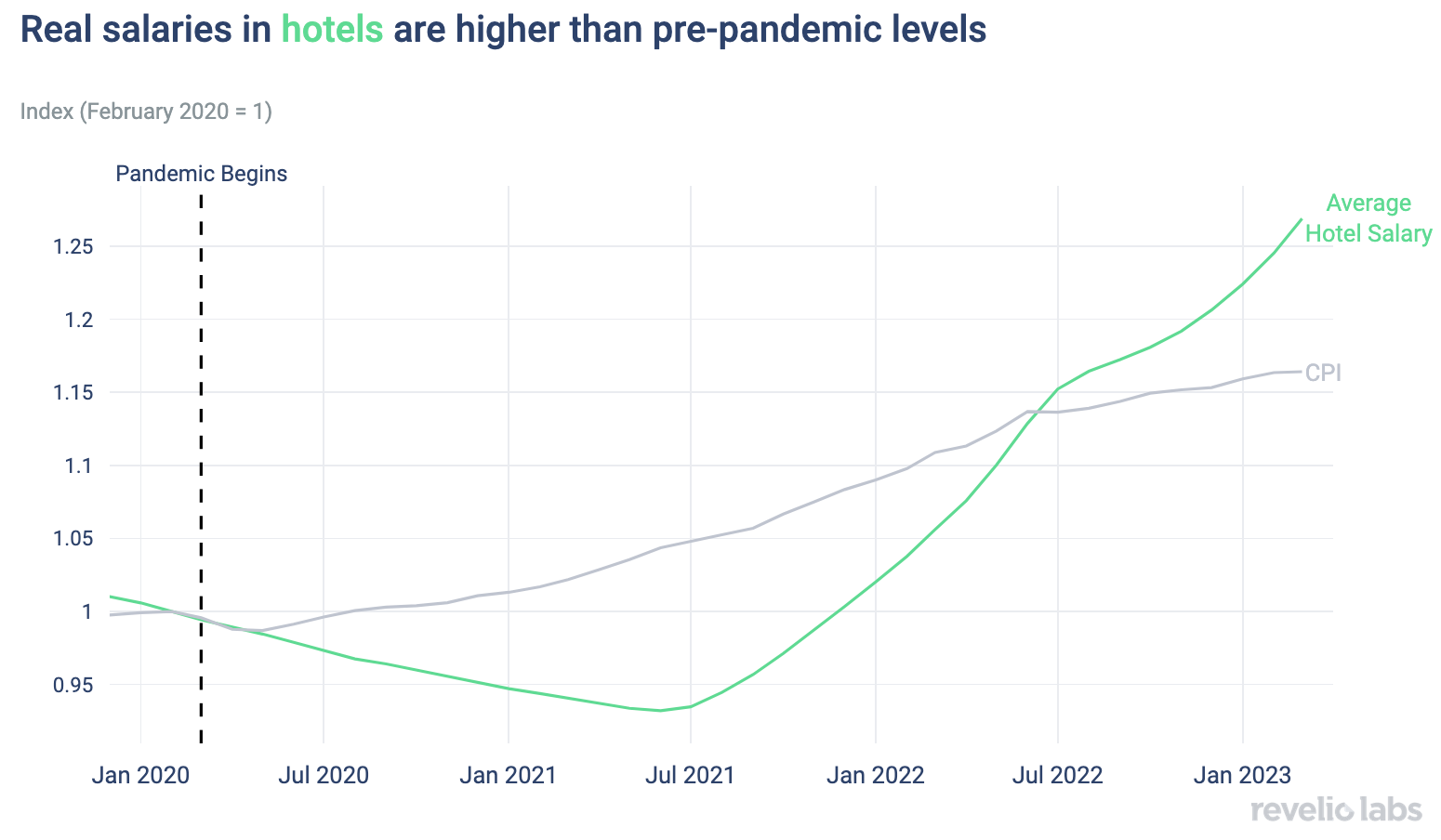
Sign up for our newsletter
Our weekly data driven newsletter provides in-depth analysis of workforce trends and news, delivered straight to your inbox!
Looking at other diagnostic analytics, we find that increasing dissatisfaction with work conditions can be another reason for low hotel employment. Indeed, the steep rise in salaries may be employers attempting to compensate for this dissatisfaction, but if so, it hasn’t been enough. Among hotel workers, there are several sources of renewed dissatisfaction that are frequently mentioned in the negative aspects of workplace reviews, particularly compared to the period before the pandemic. The major grievances appear to be poor management, long hours, and, in spite of any increases, pay, our diagnostic analytics tools indicate.
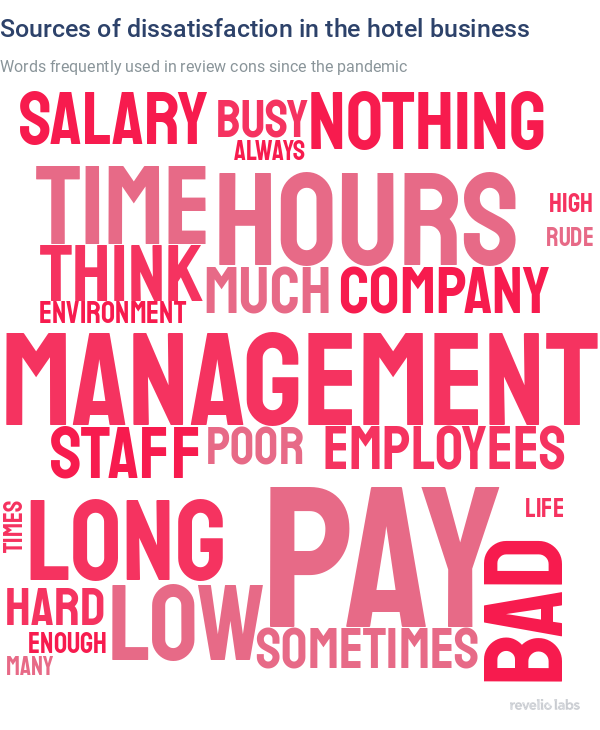
We may still be in a hotel labor shortage overall, but that’s not true everywhere: Some vacation spots have seen strong growth in their hospitality employment. Below are the destinations where the hotel workforce has seen the most growth and decline over the last year. Interestingly, the largest declines are almost all in Southern coastal cities, Revelio Labs data show. On the other hand, growth in Nashville has been impressive; maybe this is the year to finally get into bluegrass?

